
Master Matchmaker
The Talmud states that a man must love his wife as his own body, and honor her more than his own body. Of such a man, it says, 'And you shall know that peace will reign...'

"The Talmud states that a man must love his wife as his own body, and honor her more than his own body. Of such a man, it says, 'And you shall know that peace will reign in your tent.' But here…
The following true story was told by the Vilna Gaon to his main disciple, Rabbi Chaim of Volozhin.
The first leg of the Vilna Gaon's planned move to Israel took him to Amsterdam. From there, he planned to sail by boat to the Holy Land. But his plan came to naught in the end. When one of his sons later asked the reason why the Gaon had not continued his journey, this was the answer he received: "I do not have Heaven's permission."
The long trip had left the Vilna Gaon feeling extremely weak. Coming upon a small village near Amsterdam, he decided to rest there a while. A rich local Jew invited him to stay as a guest in his home. The man did not recognize the Gaon, as the latter chose to travel incognito. But his holy countenance was a better testimonial than a hundred character witnesses. The Vilna Gaon accepted the man's invitation for the next three weeks.
The wealthy Jew's spacious and elegant home served as a meeting place for the local Jews. Morning, noon, and night, they gathered there to pray in one of the rooms. This "shul" contained a large library, which drew Torah scholars like a magnet in an era when no single individual owned an entire set of Talmud, only isolated tractates. The shul library in the rich man's home boasted a complete set of Talmud, along with numerous commentaries. Here, the Gaon found everything he needed. His meals were brought to him at specific times, and he was able to immerse himself in Torah study day and night in the shul. His host provided him with the best room in the house, opposite his own bedroom — but his guest spent little time there.
When he had regained a little of his strength, the Gaon desired to continue his journey. He announced his intention of paying his host for all his hospitality, but the man refused to take a penny from him. "Thank God, Who gives me the merit of welcoming guests to my home. Shall I take a reward for this? Never!"
"Then I will say farewell," conceded the Gaon.
"You have not told me your name," his host said, "but I understand that Your Honor is a great leader in Israel. I have seen the way you do not desist from learning Torah day and night. During the three weeks you have been under my roof, you have learned all of Talmud with commentaries, all four sections of the Code of Jewish Law, and other works.
"In that case," the man continued, "please tell me: Have you noticed anything that is out of order in my home? Anything improper, either in Jewish law or ethically? Do not conceal a thing from me, and do not be afraid to rebuke me. I love rebuke and I wish to improve my ways in this world so that I do not stand ashamed in the World to Come."
"Everything I've seen about your lifestyle is as it should be," the Gaon replied. "I only noticed one thing that is contrary to the Talmud."
Aghast, his host begged him to reveal what that thing was.
"The Talmud (Yevamot 62) states that a man must love his wife as his own body, and honor her more than his own body. Of such a man, it says, 'And you shall know that peace will reign in your tent.' But here, in your home, I have seen something new. I have seen a man who loves his wife more than his own body. Every morning, you bring your wife a bowl, water, and a towel so that she can wash, and then you bring her a cup of coffee to drink. But you yourself do not drink coffee (in the morning). That is what I mean by 'more than his body.'"
Hearing this [tongue-in-cheek] "rebuke," the host smiled. "I'd like to tell Your Honor the reason for this strange behavior."
Here is the tale he told.
I grew up far from Holland (the man began), in a certain city in Poland. My father was a well-known Torah scholar who pored over the Torah night and day and who knew the Talmud to its depths. Our home was a poor one. We ate meager bread and drank water — but the Divine Presence rested in our home, bringing light and contentment to our house and our hearts.
I was only 9 years old when I became engaged to be married. A certain wealthy man who lived near our town — a good and pious man — desired me as husband for his daughter, who was my own age.
From the time of my engagement, my fiancé's father cared for me as if I were his own son. I was wearing threadbare clothing and shoes that were falling off my feet. Seeing this, my future father-in-law told my father, "I do not want my son-in-law to dress like a beggar." He bought me nice clothes and fine leather shoes. To make sure I would grow to become a Torah scholar, he hired a fine tutor at his own expense, and the tutor taught me Torah for six years, until I was a youth of 15.
The wedding date had already been set when the wheel of fortune turned, leaving my future father-in-law destitute.
My father, however, knew nothing of this. He traveled to my future father-in-law's house to finalize the arrangements — and found only a degraded beggar, living in a hovel. In the yard, a girl dressed in rags was tossing feed to some ducks. My father had a hard time recognizing the girl his son was about to wed!
Ashen-faced, my father entered the hovel and collapsed onto a bench. The shock had robbed him of his strength, and he felt on the point of fainting.
The unfortunate beggar gazed mutely at my father, then burst into bitter tears. "You have come to [discuss formal arrangements] for the wedding — but I do not have anything but the shirt on my back!"
My father felt deeply sorry for the man, but could find no words. At last, he asked, "What shall I do?"
The poor man drew a deep breath. "I release you from the bond of marriage. If you break the engagement, I will bear no grudge against you."
The girl was summoned and asked her mind. She assured them that she completely forgave her fiance and his family for breaking off the match, and bore not even a shred of ill will against them. My father took out the engagement contract and tore it up. The "shidduch" was off.
I was grief-stricken. In one fell swoop, I had fallen from the pinnacle of happiness to the depths of despair. At first, I could hardly believe my father. I thought he was joking. But when he showed me the ripped document, my eyes filled with tears. Only then did I grasp the enormity of my bad luck.
My father scolded me for walking around broken-hearted. That same week, he sent word to a certain prosperous Jew in our town, letting him know that his son's engagement had been broken. If the man wished to arrange a match between his own daughter and me, they could talk.
The rich man agreed with alacrity. I had a good reputation. I was a learned boy, tall and handsome. The match was quickly agreed to. At my engagement party I gave a Torah discourse that astounded everyone who heard it. For everyone else, the memory of my first fiance was erased as though it had never existed. But my own heart was bitter. I could not forget that unfortunate girl for a minute. To tell the truth, I was prepared to give up all the good things I was being offered, in order to avoid embarrassing a fine Jewish girl. But it was no use. No one asked my opinion.
Four months passed between my engagement and the wedding. In my emotional state as my wedding date approached, the memory of my first fiance and her ill fortune began to fade. I married the rich man's daughter in a splendid wedding, amid great joy. Dancing and celebrating, I completely forgot the "first round." I was the happiest of men.
But not for long…
The week-long wedding festivities (Sheva Brachot) came and went. On the following morning, I woke up aching all over. I could not get out of bed. Thinking that I had caught a cold, I remained in bed all that day, and the next. But not only did I not get any better, I began to feel even worse.
Seeing this, my father-in-law spared no expense to bring the best doctors to my bedside. They drew blood, prescribed medicines, mixed potions, and fed me concoctions. Nothing helped. Each day, the doctors examined me anew, but they could not diagnose my illness. My entire body was covered with ugly sores; from head to toe I had no relief. And as if this were not enough, I was suddenly afflicted with painful boils all over. My family found my treatment — and their disgust at the sores and the boils — too much for them to handle. They had me transferred to a community center, which served as both hospital and guest house for local paupers and itinerant beggars.
In the community center my condition worsened. My arms and legs did not actually wither away, but they were filled with painful and unsightly sores and boils that were difficult to bear. My eyes were puffy and swollen and a foul odor was on my breath. My wife's family began to whisper. At last, my father-in-law came to me and demanded that I give his daughter a divorce, and I agreed.
I had been punished, measure for measure… I understood that Heaven was punishing me with this illness.
I remained in the community center for several months before there began to be some improvement in my condition. I could now get out of bed for short intervals, and the sores and boils on my arms and legs grew smaller. My appearance became a little less revolting.
I did not waste my time. Lying in my bed, I busied myself learning Talmud and Jewish law. One of the other guests at the community center — a bright and witty young fellow — noticed what I was doing. He said, "Why do you lie around in bed? You'll starve!"
"I'm a broken vessel. I won't succeed at anything," I answered.
With a sharp glance, the other man said, "I have a good idea for you. I will rent a good wagon and line the seat with comfortable cushions. Let us travel together from village to village and from town to town. We'll go door to door, and I'll introduce you as a learned man whose fate has turned bitter — and I'll ask for charity for you. Your appearance will arouse compassion wherever we go. I'm sure that the Jews — merciful people and the children of merciful people — will take pity on you and give you twice as much as they'd give any other poor man."
I agreed to this plan.
The young man put his scheme into prompt action. He rented a wagon and a strong horse, deposited me on the cushioned seat, and off we went. We wandered among the towns and villages, and all came to pass just as he had predicted. In every place, he brought me to the local shul and described the extent of my learning, my bad luck, and difficult illness. Jews all over, compassionate people and lovers of Torah and its scholars, saw that I was no common pauper, but one who knew how to learn intricate Torah topics. At once, they came to me with questions on the Talmud, bringing me difficult sections of commentary from various tractates. I would explain and elucidate to the best of my ability.
I became a valuable commodity — a kind of pearl covered in dust, but a pearl nevertheless.
"Do not look at the bottle, but at what lies within," people would tell me. At first, I cringed. After a while, though, I grew accustomed to my new identity. I was a cripple, one of life's deformed.
I was not alone. Many sick people went around collecting charity, but it seemed to me that none of them was as ill and deformed as I was. One day, we came to a Polish town. In the yard of the town's community center we saw a wagon. At the reins sat a man whose pinched and lined face testified to the difficult life he had led. Inside the wagon, in a nest of pillows and faded blankets, lay his daughter. She was sallow-faced, and appeared even more ill than I. We began to talk, the father and I, and eventually reached an agreement: From now on, we would travel together to collect money as partners.
I told my companion that I needed neither him nor his horse and wagon any longer. We agreed to part ways. He had long been growing tired of traveling and had already amassed a decent sum of money from our efforts.
For several weeks my new companion and I traveled together. We became friendly. One day, he suggested that I marry his daughter. I revealed to him that I had been divorced, but that did not deter him. We signed an agreement, ate some cake that a kind homeowner had given us, and shared a "L'chaim" from a small bottle of whiskey. A wedding was planned.
About a month later, we stopped at a town. In the courtyard of the community center a wedding canopy was erected. In the presence of 10 local Jews, the man's daughter and I were married — in a paupers' ceremony, with a bride and groom who certainly suited one another — both sickly and weak, dressed in rags and tatters. A handful of Jews participated in our wedding feast, which consisted of seeded bread and some onions that the guests had brought along in their pockets.
After the wedding ceremony, my bride and I were alone together for the first time… Despite the poverty-stricken circumstances, I was filled with great happiness.
Not so my bride. No sooner had the door been closed behind us, than she sat down and gave way to a storm of weeping.
"Why are you crying?" I asked in astonishment. "There is a time for rejoicing and a time for weeping, as the wise one said. And this is the time to rejoice!"
"How can I not cry?" she countered. "I remember how I once used to be. My father was a rich man, and when I was a girl of 9, I became engaged to a boy my own age, an outstanding scholar of fine lineage who learned diligently day and night. My father clothed him and took care of his every need. Then, just before our wedding day, my father lost his fortune. My fiance left me, and I remained alone and humiliated. And then, as if that were not enough, I fell so ill that I could not get out of bed. For several years I have wandered with my father, collecting charity handouts to prevent us from starving.
"How can I not cry, when today I have married a sickly groom, as unfortunate as I am, poor and destitute. I do not know who he is or what his family lineage might be."
I stared at her in amazement. The story was a very familiar one to me.
"Is your father called So-and-so?" I asked.
"Yes."
"Did you live in such-and-such a village, and was your house behind the large haystack?"
"Yes. But how do you know that?"
"Look at me!" I shouted emotionally. "I am your former fiance!"
Now it was her turn to stare incredulously. She asked me a number of questions, to test if I was indeed the man I purported to be. Then, all at once, she recognized me.
Both of us began to cry then. For a long time we sat and wept together in that room. We sensed with powerful clarity the guiding hand of Providence that brings people together and unites sundered hearts. When we left the room, we let the others in on the story. We wanted them all to see how the Almighty, in His eminent compassion and loving kindness, establishes homes in Israel. Even if a couple is parted against their will, He will seize them by the hair and bring them back to one another.
And then a wonderful thing happened. Immediately after the wedding, both of us began to recover, my wife and I. We returned to health, as though we had never been sick a day in our lives. We settled here in this small village near Amsterdam, and the Almighty blessed us with wealth and honor, and wonderful children.
"And now, I ask Your Honor," the host said as he finished his moving tale, "after I caused my wife so much pain and distress for so many years, am I not obligated to appease her with all sorts of gestures, over and above the strict letter of the law? Do you understand why I accord my wife all this honor?"
The Vilna Gaon, hearing this amazing story, changed his mind and decided to remain two more days at the house. Before he left, he blessed his host and the whole family with great blessings.
(TALES FOR THE SOUL (VOLUME 3)" -A famous novelist retells classic stories with passion and spirit.Published by ArtScroll/Mesorah Publications Ltd., Brooklyn, NY.)




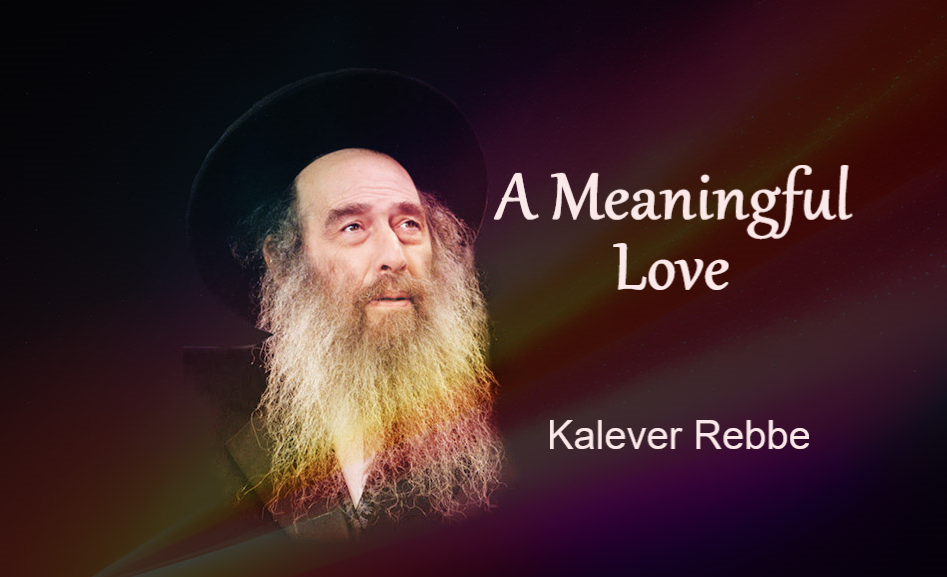

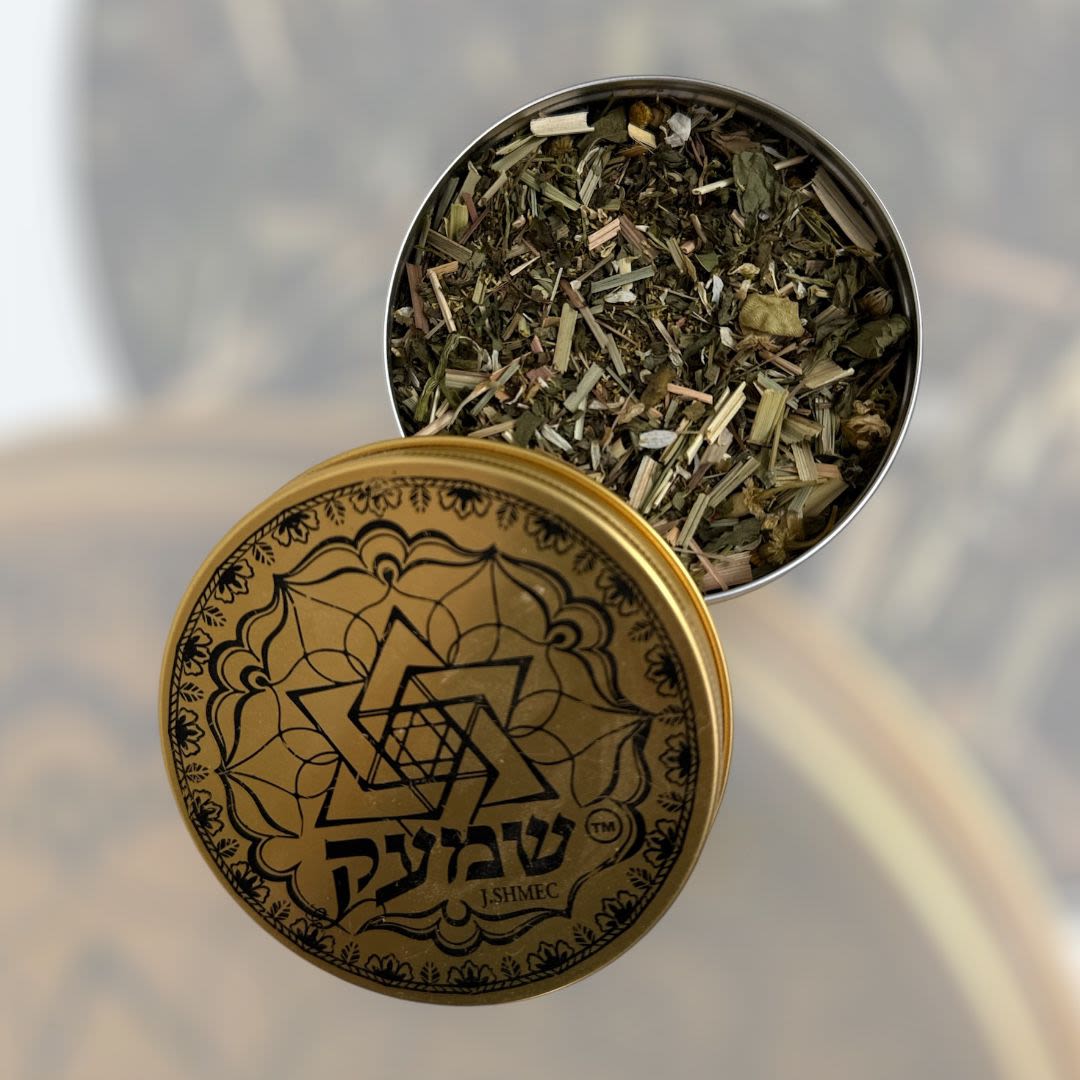

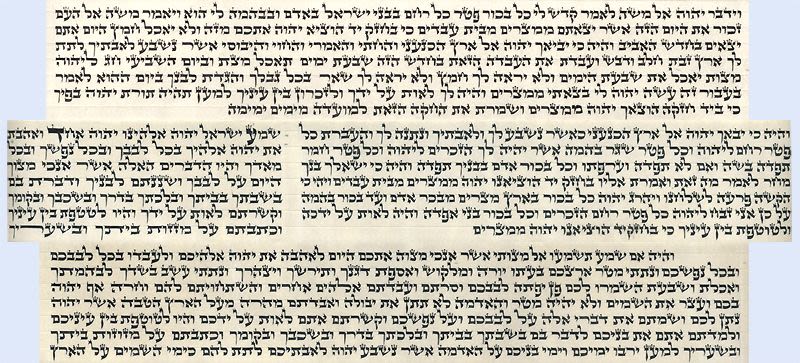
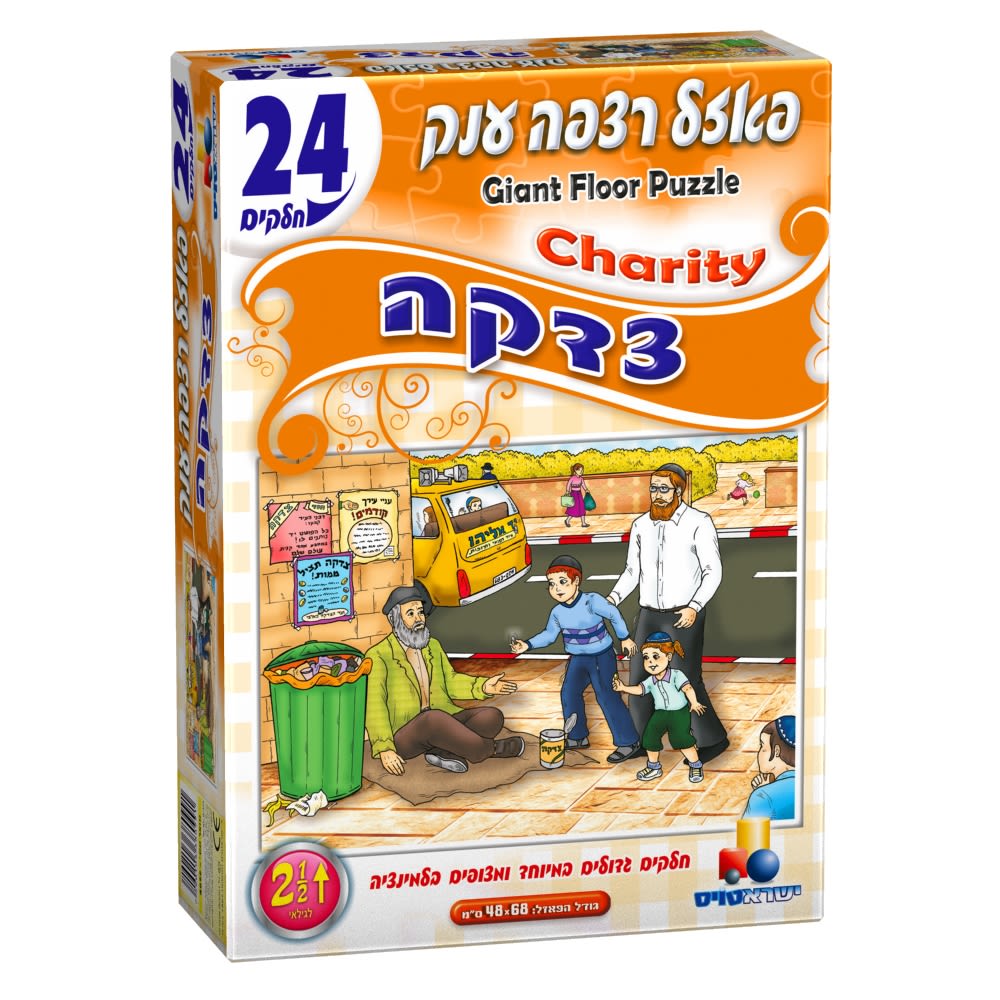
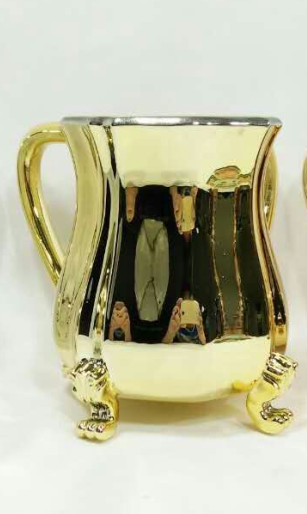

Tell us what you think!
Thank you for your comment!
It will be published after approval by the Editor.